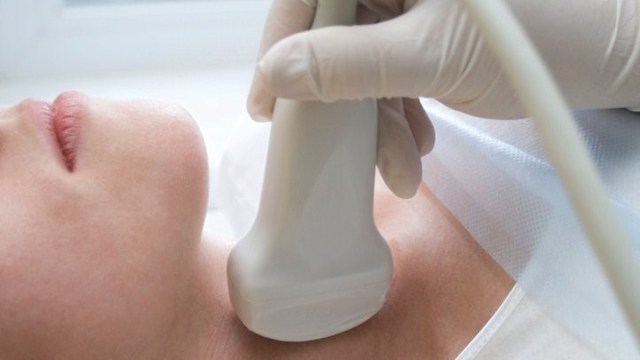When treating certain thyroid conditions, sometimes it may be necessary for doctors to use radioactive iodine. So, the first question a patient should have is what exactly is radioactive iodine (RAI) and what are the risks?
As the ATA (American Thyroid Association) explains, RAI is iodine made into a radioactive substance for medical use. There are two types: I-123 and I-131. It is taken orally and is absorbed in the body like regular iodine. In the form of I-123, RAI is nondestructive. When in the form of I-131; however, RAI will destroy thyroid cells. Any excess RAI will be discarded from the body through either sweat or urine.
Kodak Moment
So you’re going in for imaging of your thyroid, eh? Well, you might have to take a dose of RAI. Don’t worry, it will only be a very small dose – enough so that the camera used can indicate where the radiation is. While the radiation assists with getting a clear picture, it also helps out with letting medical staff know the level of activity there is in the thyroid gland. And lastly, no, I-123 doesn’t have weird side affects. The ATA reports that I-123 is just about as harmless as taking a regular x-ray.
More Intense Treatment
I-131, on the other hand, is used to destroy thyroid cells. When the thyroid tissue is normal, doctors may use small amounts of I-131 to get rid of overactive tissue as in the case of hyperthyroidism. Next, I-131 is used to shrink thyroid glands that are enlarged. An enlarge thyroid gland doesn’t mean that the gland isn’t normal. It may mean; however, that because of the size itself, the patient may have problems breathing or swallowing. So, shrinking the thyroid would be necessary in this case. If patients experience any pain, aspirin or ibuprofen should do the job.
When a patient is battling cancer of the thyroid, large doses of RAI, I-131, is administered. The objective is to destroy all the cancer cells. There are precautions that the doctor will familiarize you with due to compliance with the Nuclear Regulatory Commission. In other words, you don’t want to expose anyone else, especially children, to the radiation that you may have left over in your body.
With I-131, there are risks. Some of the risks may be temporary pain and swelling in the salivary gland to permanent problems like the loss of taste or dry mouth. According to the ATA, these side affects can be prevented or reduced by sucking on lemon drops right after therapy. Nursing or pregnant women will never knowingly be given the aforementioned tests. And men who take RAI for cancer treatment may have a lower sperm count and even temporarily be sterile up to two years.
Ultimately, your medical staff and you will make the best decision for your case. Being in the know is being empowered. And being empowered is one more step toward freedom.
And now, for a little light reading, please click on the link below and follow my adventures of self discovery through hair
http://www.associatedcontent.com/article/1649257/can_a_haircut_make_a_pe...
And for empowering poetry about women, please click the following link:
www.blurb.com/my/book/detail/623276




Add a CommentComments
There are no comments yet. Be the first one and get the conversation started!